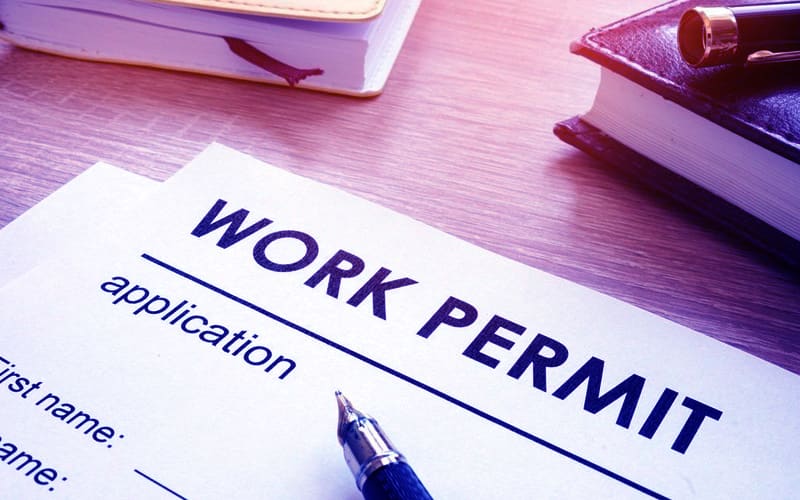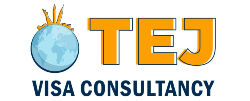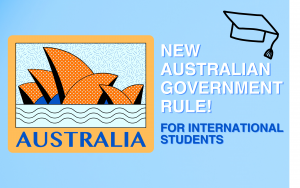Canada’s Immigration Minister signals that changes are coming to post-study work rights

- Federal and provincial immigration officials are in discussions to make significant changes to Post Graduation Work Permit (PGWP) eligibility. The PGWP is an open work permit, available to international students who have completed an eligible program of study at a Designated Learning Institution (DLI).
- The last time the PGWP policy was significantly changed was in 2008, at which point the programme expanded to allow foreign graduates to gain an open work permit for up to three years, depending on the length of their programme of study. There have been no restrictions on location or programme of study, not are there any requirements in terms of a job offer or minimum income threshold.
- It appears, however, that change is on the near horizon for the PGWP. An internal IRCC briefing document reports that, “PGWP [participation] increased by 214% in 2023 compared to 2018.”
- The brief notes as well that, “Work is underway to re-align the program to better meet targeted labour market needs and immigration objectives…The goal of re-aligning labour market needs is to facilitate access to work permits for students entering occupations in shortage, while reducing access for graduates from other programs. This could have a significant impact on the volume of international students and PGWP holders, if stringent tapering is applied to programs with lower labour market relevance. Advice on this issue will be provided to the Minister in spring 2024, with the goal of implementing changes in January 2025.”
- Immigration Minister Marc Miller has made public statements to similar effect in recent months, and is clearly signalling his intent to reform the PGWP programme – in particular to better align it with labour market needs in Canada.
- It is unclear what shape those reforms may yet take, but one of the options available to the Minister would be to cap, or otherwise limit, PGWP participation in some way. Other informed observers have suggested that new PGWP settings could result in shorter post-graduate work terms for areas of lower labour market demand alongside longer periods of work for fields that are better aligned with Canada’s labour needs.
- Eligibility for Open Work Permits
High-Skilled Workers
- Family members of high-skilled foreign workers may qualify for an open work permit if the worker meets these conditions:
- Holds a valid work permit, has an approval for one not yet issued, or is authorized to work without a permit.
- The work permit or authorized work is valid for at least six months after the family member’s application is received.
- Is employed or will be employed in a high-skilled occupation (TEER categories 0, 1, 2, or 3).
- Lives or plans to live in Canada while working.
Low-Skilled Workers
- For low-skilled workers, the conditions are similar but specific to their category:
- Holds a valid work permit, has approval for one not yet issued, or is authorized to work without a permit.
- The work permit must be valid for at least six months after the family member’s application is received.
- Is employed or will be employed in a low-skilled occupation (TEER categories 4 or 5).
- Lives or plans to live in Canada while working.
- Specific Conditions for Family Members
- Family members must meet general eligibility requirements for a work permit and be in a genuine relationship with the principal worker. They can be:
- A spouse or common-law partner.
- A dependent child or a grandchild.
- For family members already in Canada, they must have valid temporary resident status, have applied to extend their status before it expired, or be eligible for restoration of their status as a visitor, worker, or student.
- Exceptions to Eligibility
Family members are not eligible if the principal worker:
- Has made a refugee claim referred to the Immigration Refugee Board.
- Is subject to an unenforceable removal order.
- Is an international student working in a co-op program or off-campus without a permit.
- Is applying for a post-graduation work permit without a positive decision at the time of the family member’s application decision.
- Holds a spousal open work permit.
- Special Programs
- For workers under the Agri-Food Pilot with a labour market impact assessment (LMIA)-based permit and a permanent residence application, family members are eligible for open work permits.
- However, those in the low-wage stream of the Temporary Foreign Worker Program, Seasonal Agricultural Worker Program, or those with specific LMIA restrictions are not eligible.
- In all cases, the minimum working age requirements of the province or territory must be met, and open work permit holders must adhere to relevant labour laws.
- Application Timing
- Depending on the situation, family members can:
- Apply for their work permit simultaneously with the primary applicant, either online or at the port of entry.
- Apply separately, either before or after arriving in Canada.
- Application Process
Required Documentation
- Applicants must provide documents to prove eligibility. Additional documents may be requested by immigration officers if needed.
For Family Members of High-Skilled Workers:
- Proof of Relationship to the `Principal Applicant:
Spouses and Common-Law Partners:
- Marriage certificate
- Statutory Declaration of Common-Law Union (IMM 5409)
Other Dependents:
- Birth certificate
- Adoption papers (if applicable)
- Proof of Principal Applicant’s Work Authorization:
- Copy of work permit or letter of introduction
- Visitor record showing authorization to work without a work permit
Note: Some family members do not need to provide proof of the principal applicant’s work authorization if they apply at the same time as the primary applicant who holds a Post-Graduation Work Permit (PGWP), Quebec Selection Certificate (CSQ) outside of Quebec, or an employer-specific work permit.
- Proof of Work Duration:
- Copy of work permit with expiry date
- Letter of introduction (port of entry letter)
- Visitor record with expiry date showing authorization to work without a work permit
- Passport stamps showing the period of authorized work (for work permit-exempt applicants)
For Family Members of PGWP Holders:
- If applying simultaneously, proof of the length of the principal applicant’s authorized work period is not required.
- Proof of Employment in a TEER Category 0, 1, 2, or 3 Occupation:
- Letter from the current employer detailing employment information, job description, and NOC or TEER category
- Offer of employment letter
- Special Considerations
International Mobility Program Plus (IMP+) (CSQ Holders Outside Quebec):
- Family members do not need to provide proof of the TEER category if the primary applicant holds or is approved for an IMP+ work permit.
- How IRCC processes your application
Applying Together
Online Application
- Eligibility: Ensure that both the principal applicant and family members are eligible to apply online together.
- Step 1: The principal applicant’s application is processed first.
- Step 2:
- If Approved: Family member applications submitted simultaneously will be processed.
- If Refused: Family member applications will be refused, and only the open work permit holder fee will be refunded (processing fees will not be refunded).
Port of Entry Application
- Eligibility: Ensure the program allows applying at the port of entry.
- Step 1: The principal applicant’s application is processed first.
- Step 2:
- If Approved: Family member applications will be processed if the principal applicant’s application is approved.
- If Refused: Family member applications will be refused, and only the open work permit holder fee will be refunded (processing fees will not be refunded).
Applying Separately
- Family members can apply for a work permit after the principal applicant has applied, even if they were eligible to apply together.
- Step 1: The principal applicant’s application is processed first.
- Step 2:
- If Approved: Family member applications will be processed as they are received.
- If Refused: Family members cannot apply for a work permit, but the open work permit holder fee will be refunded (processing fees will not be refunded).






